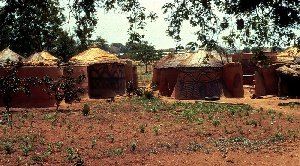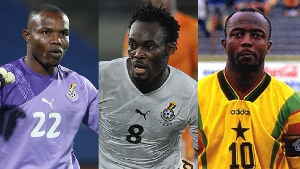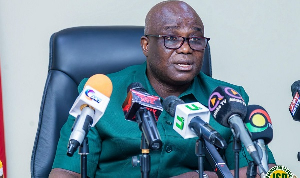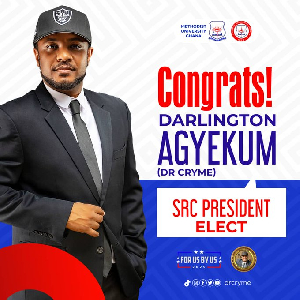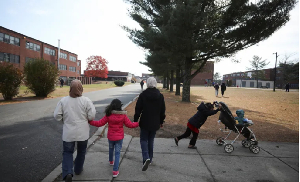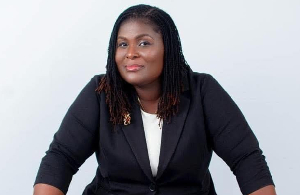The Merriam Webster dictionary defines ‘north’ as ‘’the direction that is to your left when you are facing the rising sun: the direction that is the opposite of south’’. It also defines northern as ‘’of, relating to, or characteristic of a region conventionally designated North’’. The geographic definition of the ‘north’ is more technical, as the term is defined in relation to the ‘’geographic or true north’’ and the ‘’magnetic north’’. More tellingly, the physical location of any place is designated in latitudes and longitudes.
For ease of comprehension and purpose, the Merriam Webster dictionary definition of ‘north’ and ‘northern’ is used here. In that regard, it could be said that the northern region of Ghana is south of the upper east region as the eastern region is north of the Greater Accra region. By this analogy then, the north/south is simply a reference point based on one’s location. But is it that simple? No? The Merriam Webster’s definition of ‘northern’ then is useful, in this case, ‘northern’ is implied.
In Ghana, mostly when people use the terms ‘north’ and ‘northern’, it is the implied meaning they refer to, rather than just by direction or location. Whilst the implied meaning of ‘northern’ to refer to the northern, upper east and west regions as a homogenous entity is often well intended, most times, sadly, this implied meaning of ‘northern’ is used on the basis of prejudice and exploitation, depending on the angle one is coming from.
The use of ‘northern’ to refer to these regions as a homogenous entity has colonial historical precedence. The British used the term ‘’northern territories’’ to refer to the many kingdoms and states that were north of the Asante Kingdom. The British initial use of ‘’northern territories’’ was more by location/direction than by implication. However, with time, the use of ‘’northern territories’’ by the British assumed an implied meaning due to their insatiable appetite to continue to exploit the Gold Coast’s resources with greed and intelligence. Thus the British invented a way that historically has been coined as ‘’educate the northerner, lose the labour force’’.
This policy was meant to use people of the northern territories as labourers in the goldmines and cocoa farms that generated for them huge sums of money. To keep the landowners happy, a wee bit of the revenue generated was then used to educate the children (sons) of prominent chiefs and other prominent members of society abroad and in the Gold Coast.
This succeeded in associating a certain kind of negative brand towards ‘’northerners’’- labourers and illiterates! Indeed, one colonial governor described people from the northern part of Ghana as ..."an amiable but backward people only fit as mowers of wood and drawers of water for their more fortunate brethren from the South...." and another said he would not " spend a penny more than is necessary for the maintenance of the British colonial office in the northern territories, for as far as I am concerned, the northern territories are bereaved of mineral resources and not Worth being invested in...." Refer to Konings,P.(1975).
Although President Nkrumah tried to cure this historical injustice by the institution of the Northern Scholarship Scheme (The scheme was instituted in 1957) which remains till today, the damage had already been done and ‘’northerners’’ have since been subjected to an unending kind of prejudice and exploitation by ‘’southerners’’ and ‘’northerners’’ alike!
For instance, in Ghana today, we use the terms ‘’the three northern regions’’, ‘’the north’’, the northern part of Ghana’’, and ‘’the northern sector’’ all to our own prejudiced and exploitative understanding. The ‘’three northern regions’’ and the ‘’north’’ are used in similar fashion to refer to the northern, upper east and upper west regions.
In today’s Ghana, there are some university students who actually think these regions are one region instead! You often suffer to comprehend how such people managed to pass their social studies exams in JHS and SHS. Then again, a lot of Ghanaians think all ‘’northerners’’ are Muslims or speak the same language, thus, Muslims from the ‘’south’’ are not just referred to as Muslims but variously referred to as ‘’Asante Nkremu’’, ‘’Fante Nkremu’’, etc.
Even in the entertainment (movie) industry in Ghana, apart from the relevance of depicting true culture, there is often a kind of prejudice behind the roles ‘’northerners’’ play in our local movies, especially the kumawood movies. It is not surprising to see a gateman in smock or fugu or with a funny characterization being referred to as Atongo.
Often, when ‘’the northern part of Ghana’’ is used, then the Brong Ahafo and Volta regions come to the picture. This is usually the case when there is a certain kind of development intervention to be rolled out in the part of the country we choose to call ‘’the northern part of Ghana’’.
Citizens of the Brong Ahafo region do not view themselves necessarily as ‘’northerners’’ but will embrace with two hands development interventions that are meant for the ‘’northern part of Ghana’’. For instance the Savannah Development Authority (SADA) is established to oversee development priorities of the savannah ecological zone and that zone is defined to include parts of the Brong Ahafo and Volta regions (Savannah Accelerated Development Authority was established by an Act of Parliament; SADA Act 805 on 17 September 2010).
In this regard, we comfortably say the savannah zone yet if not because of the benefits that policy will bring, on any day the savannah is associated with the “three northern regions”. Invariably, “the northern part of Ghana” is the savannah zone and not “the three northern regions”.
Yet due to human activities and climate change, the savannah conditions continue to spread and may sometime reach the southern parts of the Brong Ahafo and Volta regions as well as the northern part of the Ashanti region. Maybe by then if SADA still exists, the policy will spread to reach those areas. But hey, even the new government is about to “kill” SADA and in the process we will have close to four development authorities and the Northern Development Authority I am sure will be exclusive to “the three northern regions”. It remains to be seen if the savannah zones of the Brong Ahafo and Volta regions will be part of the incoming Northern Development Authority.
Also, in Ghana, we use the term ‘’northern sector’’ exploitatively. While the Ashanti region does not seem to be part of the ‘’northern part of Ghana’’, its capital city (Kumasi) is the capital of the state we choose to call the ‘’northern sector’’. Consequently, if a second military hospital is to be built in Ghana, it must be located in the capital town of the ‘’northern sector’’.
Finally, ‘’northerners’’ themselves are quick to identify themselves as a homogeneous entity at the national level. Whilst this is not necessarily bad, the northern elite collude with their political parties they support to exploit their fellow ‘’northerners’’. Again while at the national level ‘’northerners’’ portray themselves as homogeneous and united, in their own backyard, there is discrimination of gargantuan proportions between and among various ethnic groups that is perpetuated at all levels; in schools, the church, the mosque, the public sector, etc.
The establishment of SADA was meant to drive the development of northern Ghana especially in the areas of agriculture and industry and so was entrusted to northerners to handle yet it was these same northerners that succeeded in running SADA down to the disadvantage of their fellow kin. And so as I write, the guinea fowls that took a vacation to explore in neighboring Burkina Faso are yet to return and the wild trees that were destroyed to plant knew trees have not been replaced.
The University for Development Studies, that was established as a pro-poor institution and has helped tremendously in the development of northern Ghana suffers from ethnocentrism to the point there is a struggle between northern tribes for dominance and the policies (especially student fees and charges) which emanate from the university most of whose staff are northerners, do not take into consideration its pro-poor environment and mandate.
In a region that ranks low in terms of development with other regions of the country and every statistic showing high poverty levels, you wonder how these same people are able to buy sophisticated weapons to engage in the numerous conflicts that threaten the peace and development of the area. In fact the problem of “the north” is “the northerner”!
Northerners whether referred to as such through their geographic location or as a distinctive group must do more for these prejudices built over years to give way for their better representation in the country.
However, the prejudiced and exploitative use of the various terms to refer to the people of the three northernmost regions must cease, because most of it is deliberate. This Dr Martin Luther King Jnr statement is particularly relevant ‘’Science and technology has made the world a neighbourhood, let us now through our moral and ethical commitment make of it a brotherhood’’.
Opinions of Tuesday, 17 October 2017
Columnist: Abakisi Akangagnang Lawrence

